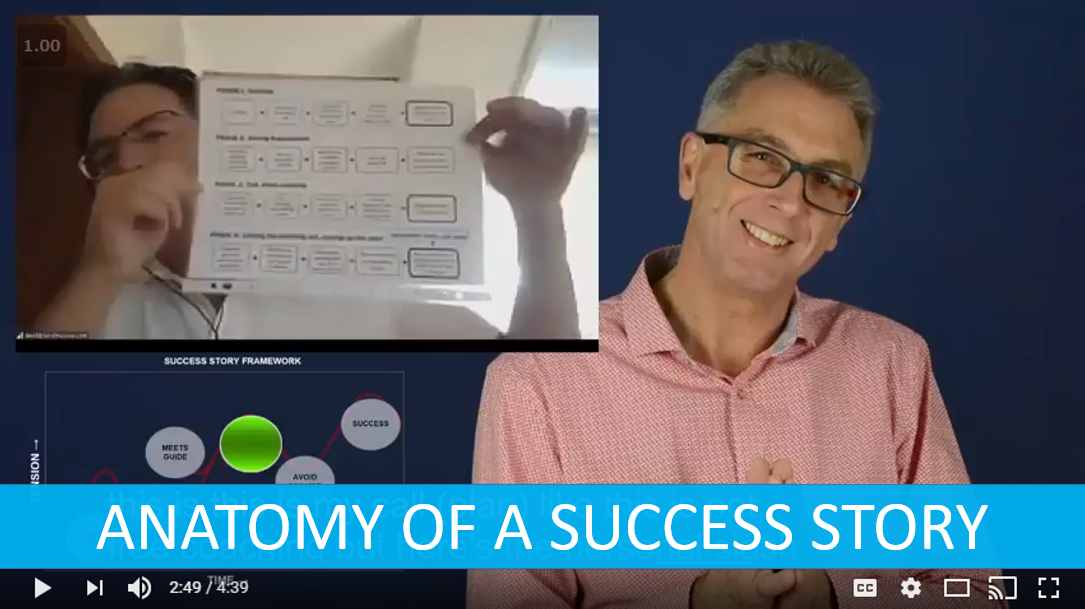
Do you know what it feels like to really help someone but they don't realise you helped?
In our business story workshops, we ask participants to
tell a story about when you helped,
this is a preparatory exercise to help them construct business success stories (not to be confused with marketing case studies).
Most people tell business stories in this exercise but occasionally there is a memorable personal story:
Nick, a successful marketing manager, told about taking his then three year-old daughter to the beach to teach her to swim in 2011. Nick took her into waist deep murky water and kept her close and firmly in sight as she tried to swim.
Nick felt a brush against his leg and at first thought it was his daughter touching him, but realising that it couldn't have been her, reached down into the water and pulled up a young boy who was drowning on the sandy bottom.
The boy spluttered and recovered as Nick carried him to the beach.
When they reached the beach, the boy's mother came up and exclaimed "oh! There you are!". She took the boy by the hand and led him away before Nick could explain what had happened.
I recently told this story in a discussion with an IT company that was struggling with customer service. Even though the story is not about customer service, the emotions it evokes are universal which makes it a generally useful story if told in the right context,
If you get in the habit of collecting your stories you'll be amazed at how versatile they can be.
_____________________________________________________
Company:
N/A
Source: Nick Horton personal experience
Story Type:
_____________________________________________________
For Story Students:
The Setting: 2011 beach in NSW
The Complications: Nick discovered a drowning child
The Turning Point: Nick brought the child to the shore but the mother didn't notice
The Resolution: The story is unresolved! which is exactly the feeling it induces
The Point of the Story: Good stories can re-purposed


